They say people who eat high-fat food are fat. I’ve heard this since a teenager and that’s decades ago. You may still be hearing this now but let me tell you, this isn’t entirely true. Fat in food does not necessarily make you fat. It depends on what type of fat. There are certain benefits of eating healthy fats and now, you’re about to find out what healthy fat foods is and those which aren’t.
Interesting Facts on Fats You Need to Know
Everyone needs fats. Fats are important for the well functioning of your body and health. They are a source of energy and also help in the absorption of fat-soluble vitamins including A, D, E and K. However, too much fat and the wrong type of fat can damage your health.
Triglycerides are the fats from the food you eat such as butter, vegetable oils and other fats that are carried in the blood. Triglycerides also come from extra calories that you consume but are not needed right away. Your body will change the extra calories into triglycerides and stores them in fat cells. When energy is needed, triglycerides are released.
Made up of a combination of building blocks that are glycerol and fatty acids, triglycerides are named so because they are composed of a glycerol molecule bound to three fatty acids → tri- and glyceride.
There are many types of triglycerides and the two main classes are saturated and unsaturated fat. The differentiation between the two is their chemical structure and properties. A simpler way to explain, saturated fat is solid at room temperature and unsaturated fat is liquid.
Unsaturated fats are further categorised into monounsaturated and polyunsaturated.
Examples, saturated fats are mainly found in butter, lard, full-fat milk and yoghurt, full-fat cheese, and high-fat meat and unsaturated fats in vegetable oils, fish and nuts.

Is Saturated Fat a Bad Fat? Not Really
You may have heard saturated fat is bad for you. Well, NOT all saturated fats are bad.
There are various saturated fats and many people labelled them all as unhealthy. I used to think of it the same.
The truth is, different types of saturated fats have different effects on health. It’s determined by the fats’ molecular structure which is the length of their carbon chains.
Fats may be short, containing fewer than six carbons, the medium has 6 to 10 carbons and the long consists of 12 to 22 carbons. Very long-chain fatty acids have 22 or more carbon atoms.
A study found participants who consumed very long-chain fatty acids were associated with decreased risk of type 2 diabetes. Besides the number of chains, an even or odd number of carbons in the chain is also important. The same study showed saturated fatty acids with an even number of carbons were associated with type 2 diabetes, while an odd number reduced the risk.
So, that shows not all saturated fats are created equal.
How about unsaturated fats then?
Unlike saturated fats, unsaturated fats have double chemical bonds that change how your body stores and uses them for energy.
Unsaturated fats are known to be heart-healthy. Same to saturated fats, there are various types of unsaturated fats. Their length and the number and position of double bonds influence their effects on your body.
Monounsaturated fats have 1 double bond, while polyunsaturated fats have 2 to 6 double bonds.
Benefits Eating Healthy Fats
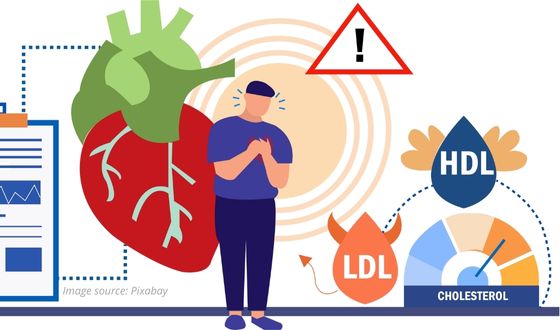
Healthy fats have numerous benefits for your body when included as part of a healthy balanced diet.
Research has consistently shown that eating foods that contain monounsaturated fat can improve your blood cholesterol level and decrease your risk for cardiovascular disease. (1, 2, 3)
Polyunsaturated fats have also been shown to reduce the risk of heart disease and lowering blood cholesterol levels in researches. (1, 2, 3)
You ought to know polyunsaturated fats are essential fats meaning your body cannot make them and needs to get them from foods. Primary sources of this fat are plant-based oils, fish such as salmon, herring and mackerel, and seeds and nuts including sunflower seeds, flax seeds and walnuts.
Omega 3 fatty acids, a type of polyunsaturated fat have been shown to be particularly beneficial for your heart. These fatty acids appear to decrease the risk of coronary artery disease and also help slightly lower blood pressure levels. (1, 2)
Does eating healthy fat help you lose weight?
So, here comes the big question does fat in food make you fat? If not, does eating healthy fat help you shed some pounds?
A study comprising obese or overweight participants with type 2 diabetes was randomly assigned to follow a one-year high monounsaturated fat diet and a high-carbohydrate diet. The conclusion was those who are on the high monounsaturated fat diet had more effective weight loss than those on a high-carbohydrate diet.
This shows a diet that includes moderate to high amounts of monounsaturated fats may be useful in weight loss.
You need to know though, fats are high in energy. 1g of fat contains 9 kcal which is more than twice the calories of 1g of carbohydrate or protein at 4 kcal/g each. Therefore, although eating healthy fats may help weight loss, eating more calories than you are burning does not help. This is true regardless of the source of calories such as fat, protein or carbohydrate.
I was made to believe fatty food makes me fat but having read through many articles and studies, I understand not all fats are bad. While fats in food do not make you fat, healthy fats do not necessarily help you lose weight. What is important is the balance between energy intake and energy use.
Weight gain is not associated with one singular nutrient but is based on the total daily energy intake and output. As long as you burn what you eat, you’ll maintain your weight. Should you like to shed some pounds, you’ll have to burn more calories than calories consumed.
How much fat should you eat?
You know now, not all saturated fats are bad fat. Some may have positive health effects too. Does this mean it’s alright to eat as much saturated fat as you want? Hold that thought.
Most nutrition experts recommend limiting saturated fats to 10% of your daily calories.
Here is the guideline ↓
Adults are recommended to get 20-35% of their energy intake from fat.
Meaning, men with a daily energy intake of 2,500 kcal should eat between 55g and 97g of fat per day. As for women, a moderately active woman, with a daily energy intake of 2,000 kcal, should eat between 44g and 78g of fat per day.
With regards to the type of fats, It is generally recommended that less than 10% of total energy intake should come from saturated fat. That’s about 28g for men and 22g for women.
The remaining part should come from the unsaturated fats; monounsaturated and polyunsaturated.
When it comes to the most unhealthy trans fats, they should be eaten as little as possible, no more than 1% of total energy intake. Equivalent to less than 3g for men and less than 2g for women.
It’s Not All About Gaining Weight or Getting Fat
The health consequences of eating too much fat or gaining extra weight are more important than being fat.
Being obese or overweight puts you at an increased risk of chronic diseases such as cardiovascular diseases, type 2 diabetes and some types of cancers.
Although the studies mentioned above showed that higher levels of saturated fat intake may not be associated with an increased risk of cardiovascular disease and type 2 diabetes, cutting down on saturated fats and replacing them with unsaturated fats shown to potentially further reduce the risks.
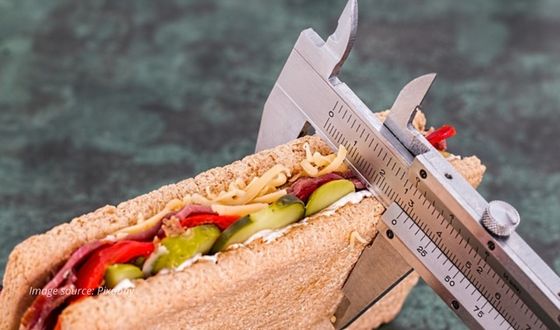
It is important to replace saturated fats with the right food.
Let’s take crispy bacon as an example. if you’re replacing your breakfast bacon with bread or pastry, it will give you similar negative effects on your health such as cholesterol levels and weight control. Why? Because bread, especially white bread and pastries are refined carbohydrates and sugar.
Does this mean you may as well have your favourite crispy bacon for breakfast? NO! This means you should not eliminate fat, but choose good fat. For example, replacing butter with olive oil.
By limiting, not eliminating your intake of saturated fat, you can still improve your health. Waistline too. It is the refined carbs, refined sugars and processed food that make you gain weight and get sicker day by day.
What is Healthy Fat Food
So, what types of food should you be looking for? High-fat foods that are healthy and you can refer to the following.
List of Healthy Fat Foods
1. Avocado

At the top of the list is avocado.
Most fruits primarily contain carbohydrates in the form of sugar but avocados are loaded with fats.
One cup of avocado (cubes) contains 77% fat by calories and that is even higher than fats in most animal foods. The main fatty acid is monounsaturated called oleic acid mostly found in olive oil.
This leads to the next healthy fat food – olive oil. But before that, I like to let you know that people who eat avocados have lower body weight and less belly fat than those who don’t, according to this study.
2. Olive Oil
Olive oil is known to be incredibly healthy. Won’t you agree?
High in monounsaturated fat, at 73% per tablespoon, the three main grades of olive oil are refined, virgin, and extra virgin. You may want to choose extra virgin olive oil because it is the least processed.
Extra virgin olive oil also contains a good amount of Vitamin E and K and is loaded with antioxidants.
3. Coconut Oil

While olive oil is high in monounsaturated fat, coconut oil is a rich source of saturated fat. As you know by now, not all saturated fats are bad and coconut oil is one good example of healthy saturated fat. Why so?
Coconut fats consist mainly of medium-chain fatty acids. Medium-chain fatty acids are unique as they are easily absorbed and metabolized by the liver and turned into ketone bodies.
What are ketone bodies? Ketone bodies are considered an alternative source of energy produced by the liver. They are made from the breakdown of fats when sugar or glucose is in short supply.
Studies have shown that medium-chain fatty acids can boost metabolism and may help in weight loss. (1, 2)
4. Fatty Fish
Fats in animal products are known to be unhealthy but NOT fatty fish. This includes fish like salmon, mackerel, trout and herring.
These fatty fish are loaded with heart-healthy omega-3 fatty acids, high-quality proteins and various important nutrients, all linked to improved health, especially heart health.
Besides, eating fish can help you healthily lose weight. A great source of lean protein, you’ll stay full longer. Also, fish are low in calories.
5. Cheese
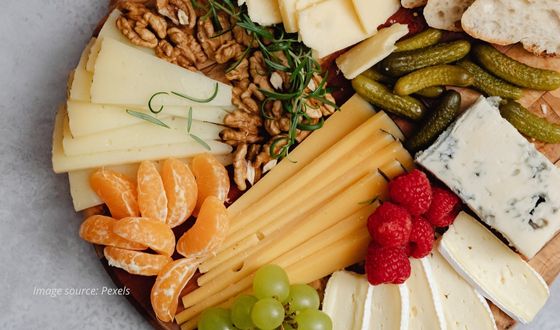
Cheese is another high-fat food containing fatty acids that are associated with many health benefits. A great source of protein and calcium, cheese also contains an impressive amount of Vitamin A and B12, along with phosphorus, zinc and riboflavin.
High-fat cheeses such as brie, blue cheese and cheddar contain conjugated linoleic acids (CLA). Research shows it may help reduce body fat while improving lean body mass and reducing inflammation.
Note that cheese made from the milk of 100% grass-fed animals contains more CLA and omega-3 fatty acids.
6. Full-Fat Yoghurt
As with cheese, yoghurt also contains CLA which may help with weight loss.
Many people choose low-fat yoghurt believing it’s healthier than full-fat. Well, if it is the healthy fat that you’re after, choose full fat.
Moreover, you ought to know low-fat yoghurt is loaded with added sugar.
Also, It is best to choose non-flavoured, plain yoghurt. Those fruit-flavoured ones although labelled as natural flavouring, exactly how natural they are, you need to read the food labels carefully.
Read more: What does natural flavour really mean?
7. Eggs
Many people believe eggs are unhealthy due to their cholesterol and fat content. I used to think so too but not anymore.
A new study indicates restricting egg consumption should not be generalized to include all individuals. This is because those who are healthy experience no risk of developing coronary heart disease by increasing their intake of cholesterol. On the contrary, they may have multiple beneficial effects by including eggs in their regular diet.
When it comes to weight control, eggs may help because they’re high in protein, the most important nutrient for weight loss. Also, the fat content of eggs induces greater satiety, giving you a feeling of fullness longer thus reducing food cravings. (1, 2)
8. Dark Chocolate
Dark chocolate is high in fat, about 65% of calories but also contains a good amount of nutrients and antioxidants.
It has been associated with various health benefits, including improved heart health, brain health and decreased inflammation. (1)
How about weight loss? Does dark chocolate help? Several studies show dark chocolate promotes a feeling of fullness and may help reduce cravings.
- 16 people in a small study compared the effects of consuming milk chocolate and dark chocolate. It found participants felt less hungry and more full and satisfied after eating dark chocolate. Additionally, those who ate dark chocolate consumed 17% fewer calories at the subsequent meal compared with participants who had milk chocolate.
- In a study in which 12 women participated, smelling and eating dark chocolate suppressed appetite and reduced levels of ghrelin, the hormone that stimulates hunger.
It’s important to keep in mind though, many varieties of chocolate contain added sugar thus you must read the ingredients list carefully when selecting yours. Also, buy dark chocolate with at least 70% cocoa and the shorter the ingredients list the better.
9. Nuts and Seeds
Nuts are high in fat, mostly healthy unsaturated fat. The same goes for seeds.
Let’s take a quick look at the fat content of the commonly consumed nuts and seeds.
| Food Item | Unsaturated Fats | Food Item | Unsaturated Fats |
| Pecans | 18g | Sesame Seeds | 14g |
| Walnuts | 16g | Sunflower Seeds | 12g |
| Hazelnuts | 15g | Pumpkin Seeds | 10g |
| Almonds | 13g | Flax Seeds | 10g |
| Cashews | 10g | Chia Seeds | 7g |
I’ve written numerous articles about the health benefits of these nuts and seeds you may be interested to read further. Browse me Nuttylog.
Now you know the good. How about the bad which you need to avoid? Next, …
List of Low-Fat Foods That Make You Fat Quickly
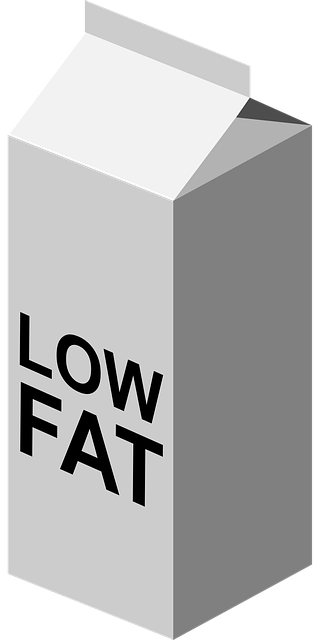
Low-fat, low-calorie or fat-free diet food may do more harm than good, especially to your waistline, though your overall health is equally important and will be affected too.
Fats give your food more flavour, texture and appearance. In food manufacturing, when fats are reduced or removed, something needs to be done to give you palatable food, so that you continue to enjoy the taste and texture. If not, how will food manufacturers sell?
When saturated fats (solid fat) are removed, the food involved becomes less stable, even if they’re replaced with unsaturated fats (liquid fat) such as vegetable oils. In this case, the hydrogenation process is used to create semi-solid fats. This process gives your low-fat food better stability, taste and texture but creates trans fats, a type of fat that can harm your health.
Besides altering the fat content, or rather the oil, sugar is added by manufacturers to enhance the tastiness of the food.
Eventually, you’re loading unhealthy fats into your diet and end up with more calories consuming low-fat foods.
So, high-fat vs low-fat vs sugar, which one is worst? After reading this article till this point, I believe you know which to choose. Tell us in the comments section below what your thoughts are.
Here is the list of low-fat foods you should be avoiding. Not all are bad though. There are certain varieties that may not cause as much harm but you must be a label reader to determine which. Here goes,
- Skim milk
- Fat-free cheese
- Low-fat salad dressing
- Low-calorie baked goods
- Low-fat flavoured yoghurt
- Reduced-fat peanut butter
- Low-fat cereal, muesli, granola bars
In a Nutshell
Not all fats are bad and by replacing bad fats with healthy fats, your body can reap the health benefits from healthy fats such as lowering the risk of developing heart conditions.
Even saturated fats that many people thought are unhealthy have been shown in several studies to benefit health.
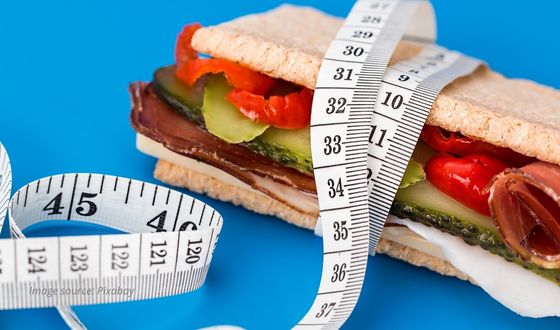
I’m saying this again, fats in foods don’t necessarily make you fat. What’s important is the balance in energy intake and output. If you want to lose some weight, burn more calories than calories you consumed, and not eliminate fats from your diet. Else, your general health will be affected because all of us need fats. Fats are your body’s building blocks. You don’t want the blocks to collapse, do you?
While high-fat foods are healthy, portion control is important. You want to reap the health benefits while avoiding excess calories.
You have come to the end of this article and I hope the information here is helpful. Do you still think that fat in food makes you fat? Share with us what your thoughts are below.
Please share this article with anyone you think may find this information useful. Click the share button!
LIKE and follow me on Facebook and/or Pinterest to get the latest nutty news more quickly.
If you like to buy healthy nuts and seeds online, consider using this affiliate link* – shop on Amazon (for US shoppers).
For my fellow Malaysians, buy on Shopee or Lazada using my affiliate link*.
There is an excellent selection with thousands of customer reviews.
*I receive a small commission at no extra cost to you. This allows me to enjoy a cup of coffee while writing and sharing more articles like this one.
Happy shopping and thanks for reading.
Me YourHealthy Corner – Stay in Good Health, Healthy Eating Habits
Recent Post
- The Importance Of Good Hydration For Day-to-day Health
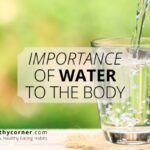
- Is Caffeine Good For Health. Or Bad
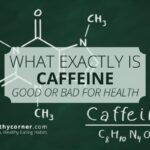
- About Hydrogenated Oil

- How Healthy is Yoghurt

- Curbing the Cravings. How to Stop Snacking Between Meals
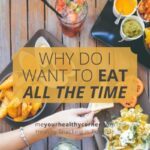
- Is Hazelnut Good For Health
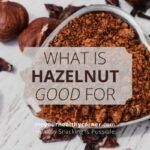
Disclosure: This blog post contains affiliate links as part of the Amazon.com Services LLC Associate Programs and other affiliate services. This means that meyourhealthycorner.com receives a small commission by linking to amazon.com and other sites at no extra cost to the readers.
Medical Disclaimer: I am not a doctor or medical professional, and this post should not be taken as medical advice. Please do your own research. The material on this blog is provided for informational purposes only. It is general information that may not apply to you as an individual and is not a substitute for your own doctor’s medical care or advice.



As someone, who recently had spinal surgery and can’t really do much exercise, I found this article really amazing. At this point I have put on a lot of weight, so really have to watch what I’m eating, it’s my only option, otherwise I’d put on weight and won’t be able to get out of bed by myself.
I really find your article useful, helps people like me, who don’t have the opportunity to visit a gym or even to go for a long walk.
Thank you
j.
I’m sorry to hear that and hope you’ll get well soon. A balanced meal is of utmost importance. Eat a variety of foods so that you get all the needed nutrients to stay healthy at all times.
Hi Sharon,
This article definitely helps me understand the information on the back of packaged foods and how to use it. I am getting a bit older now and don’t seem to process the same as I used to. I have not changed any eating habits and have recently gained a lot of belly fat.
IT has gotten to the point where I can not ignore it anymore and have started making changes. I will be counting calorie intake and now that I know, paying attention to the amount of saturated and non-saturated fats. Along with a trick I learned about sort interval fasting, I am hoping to shed a few pounds and become more healthy.
Thanks for sharing!
Chad
Thanks for reading and commenting, Chad. It is true our digestive system doesn’t work as well as it used to as we grow older. Changing our lifestyle and starting with our eating habits is the first step to healthy living. Also, it is important to know what goes into our tummy. Be a label reader.
Hello, I’m delighted I stumbled on this article, which I find fascinating because it discusses the various sorts of foods that can help to reduce cardiovascular disease risk. I like how you mentioned that Omega 3 fatty acids have been proved to be particularly advantageous for the heart since these fatty acids appear to minimize the risk of coronary artery disease and also help lower blood pressure levels modestly. I can say I now know what to do.
I appreciate it.
I’m glad you find this useful. Lionel.
Thank you for sharing this insightful article on fats and how they affect our health. You provided a great overview of the different types of fats and their benefits, and I appreciate the effort you made to dispel the myth that all fats are bad for our health. It’s important for people to understand that not all fats are created equal and that some, like monounsaturated and polyunsaturated fats, can actually be beneficial for our health. It’s also helpful that you provided information on the study that showed a high monounsaturated fat diet can be useful for weight loss. Overall, this article was informative and well-written. Thank you for sharing your knowledge on this important topic.
Thanks for reading and your kind words, Anoth.